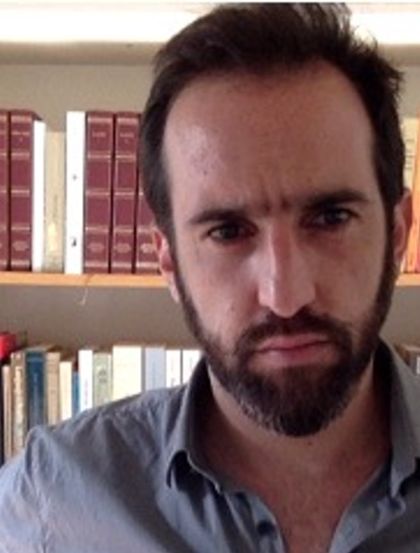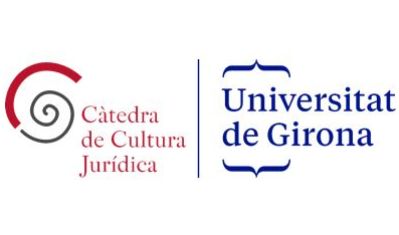WS 14. Themes at the intersection of evidence law and philosophy. Organised by Federico Picinali
(Session in English)
Evidence law scholarship has a long tradition of interdisciplinarity. The works of Bentham and of Wigmore, arguably the preeminent Anglo-American evidence law theorists, are a testament to this. In the last half-century, though, interdisciplinarity seems to have become significantly more common in the field, with many works in evidence law drawing on psychology, economics, linguistics, statistics, forensic science, decision theory, epistemology, and moral philosophy. Philosophy has been particularly central in the seemingly never-ending debate on naked statistics, their admissibility, and their sufficiency. Due to the considerable attention that philosophers have given to this debate in recent years, evidence law scholars may well be excused for thinking that this is all that philosophy has to offer to the contemporary evidence law discourse. This workshop aims to show otherwise: it is dedicated to exploring themes at the intersection of evidence law and philosophy. The scope is intentionally broad to encourage philosophical reflection on evidence law questions beyond the well-trodden terrain of naked statistics. Each talk will draw attention to themes and literatures that may serve to build new bridges between evidence law and philosophy and, consequently, new dialogues between evidence law scholars and philosophers. The hope is that the workshop will help to identify new avenues of interdisciplinary research, as well as to establish new interdisciplinary collaborations between those in attendance.
Chair: Federico Picinali
9.00 – Welcome and introduction
9.10 – Katherine Puddifoot: ‘Much More than “Mere Semantics”: The Legal Value of Distinguishing “Memory” and “Remembering”’
9.50 – Lewis Ross: ‘Consenting to Sex for Others?’
10.30 – Diego Dei Vecchi: ‘Pragmatic Encroachment, The Unity Thesis and The Law’
11.10 – Coffee break
11.40 – Talita Ferrantelli: ‘Disambiguating Sexual Consent’
12.20 – Amit Pundik: ‘Is Sexual History Evidence Relevant to Free Consent?
1.00 – Q&A
1.30 – Lunch Break
3.30 – Federico Picinali & Giovanni Tuzet: ‘Does a Fact Finder’s Belief in Guilt Contribute to Justifying Conviction?’
4.10 – Liat Levanon: ‘Evidential Reasons for Some Practical Attitudes’
4.50 – Martin Smith: ‘Expected Utility and Theories of Punishment’
5.30 – Break
5.45 – Q&A
6.30 – End
Abstracts
Katherine Puddifoot: ‘Much more than “Mere Semantics”: The Legal Value of Distinguishing “Memory” and “Remembering”’
This paper argues that legal practice and outcomes could be made more just by encouraging people to intentionally distinguish between memory and remembering. It may seem as if the terms can be used interchangeably, so the distinction is mere semantics, in the sense that it does not reflect a meaningful difference in the items to which the words refer. However, I will argue that due to the epistemic authority associated with remembering, the distinction can be an important tool against injustice. Withholding the status of remembering from certain memories that are declared in testimonial evidence—e.g. memories shaped by prejudice—can deny those memories authority, where giving it authority would contribute towards injustice.
Lewis Ross: ‘Consenting to Sex for Others?’
In many areas of life, we allow, and rely on, other people consenting for us. Principal/agent relationships, enabling proxy consent, are a foundation of the global economy. And even for physically invasive procedures, most jurisdictions allow ‘best interests’ decisions to be taken for patients lacking capacity. But not so with sex. We never allow someone to consent to sex on behalf of somebody else. Indeed, legal frameworks often explicitly exclude positive sexual decisions from what can be decided in the best interests of an incapacitous person. While this might seem utterly uncontroversial, it raises difficult legal and moral issues. Courts have faced tough cases about how to deal with the sexuality of those with cognitive impairments—a growing issue given the increasing prevalence of degenerative conditions. The more profound the impairment, the harder it becomes to suppose that carers are not participating in sexual decisions. This talk explores the philosophical dimensions of this problem and offers a view about how to proceed.
Diego Dei Vecchi: ‘Pragmatic Encroachment, the Unity Thesis and the Law’
This paper explores the intricate relationship between practical and epistemic justification. It begins by reconstructing a distinctive version of the so-called Unity Thesis—commonly linked to the doctrine of Pragmatic Encroachment in epistemology—which asserts an inherent connection between epistemic and practical reasoning. According to this version, epistemic justification is subject to pragmatic conditions. The paper then critically assesses the implications of this thesis within the domains of law and legal theory. Special attention is given to how this framework reshapes discussions on legal standards of proof, particularly in their application to individual cases, and to its broader impact on the widely accepted view that legal norms function as protected reasons for action.
Talita Ferrantelli: ‘Disambiguating Sexual Consent’
Consent plays an important role in our lives. It enables us to establish permissible modes of interaction, opening up new possibilities and forms of involvement. Philosophers tend to assume that consent serves a similar function in the sexual sphere (e.g. Healey, 2018; Tadròs, forthcoming; Dougherty, 2013; Hurd, 1996; Archard, 2007; Liberto, 2022). In this paper, I challenge this assumption and disambiguate sexual consent. I disentangle sexual consent (i.e consent to sexual acts) by showing that it fails to play the central valuable functions of general consent (i.e. consent to any ?-ing): the function to give the consenter control over whether other people can act in certain ways (Control Interests); and the function to enable a non-instrumentally valuable form of interaction between people (Relational Interests) (cf. Healey, 2022). In my account, I posit that these functions are fulfilled when conditions of epistemic safety of beliefs re the role of consent are met. Roughly, a belief is safe if it is highly unlikely that one would have formed a false belief in practically similar situations. I argue that this condition is easily attained when giving or revoking consent in most areas of our lives. However, it is hardly achievable in sexual domains. Sexual interactions are typically embedded in epistemic structures that contain significant defeaters to belief re the function of consent. As a result, the epistemic unsafety of sexual consent makes it inapt to regulate the sexual sphere.
Amit Pundik: ‘Is Sexual History Evidence Relevant to Free Consent?’
Perhaps the most objectionable use of sexual history evidence in Criminal proceedings is the ‘general sexual history’ (GSH), where the defence seeks to support their claim that the complainant’s sexual relations with the accused were consensual with evidence of the complainant’s consensual sexual relations with other people. However, establishing the irrelevance of GSH has turned out to be notoriously difficult. In this paper, I propose a new argument to defend this claim, examining this issue from a different perspective, that of free will: GSH is irrelevant to free consent, if freedom is understood as uncaused by factors external to the consenting agent. The main advantage of this argument is that, unlike other attempts, it is able to explain not only why GSH is irrelevant to the complainant's consent (the actus reus), but also why it is irrelevant to the accused’s belief that the complainant consented (the mens rea). I would then illustrate how different theories of freedom yield different conclusions as to which types of GSH, if any, are irrelevant. The upshot is that the controversy about GSH reflects a more fundamental disagreement about the concept of sexual consent and the type of freedom required for its validity.
Federico Picinali & Giovanni Tuzet: ‘Does a Fact Finder’s Belief in Guilt Contribute to Justifying Conviction?’
In this presentation we take issue with the argument that the fact finder’s belief in guilt is unnecessary, indeed irrelevant, to the justification of conviction. The argument is defended forcefully in a series of works by Jordi Ferrer, but other authors flirted with it. It rests on the supposed involuntariness and acontextuality of belief, and it insists that these features disqualify belief in guilt from being a reason – not to mention a necessary condition – for conviction. Having clarified the argument, we present the following objections. 1)Evidence has no inherent justificatory force: epistemic attitudes such as belief, far from being irrelevant to justification, are necessary to identify and assess the evidence. 2)If fact finders are reasonable epistemic agents, their belief in guilt ought to be treated as evidence of guilt. 3)Most beliefs are voluntary in that they originate from judgement; and involuntary attitudes too can justify conduct. 4)The institutional scenarios that seem to support the argument can be explained away.
Liat Levanon: ‘Evidential reasons for some practical attitudes’
The paper will explore the possibility that (1) beliefs are supported both by evidence and by the truth; they are justified by the evidence; but they stand in an ought relation to the truth; (2) the case is such not only for beliefs, but also for a range of practical involuntary mental attitudes, including empathy, compassion, anger, resentment, and so on – attitudes that are relevant when the legal system engages with people by imposing liability and by punishing. If these premises are correct, they can be part of a fuller explanation of ‘legal epistemology:’ legal factfinding involves the application of a practical standard that is nonetheless partly evidential in nature, and hence it often converges with the epistemic standard.
Martin Smith: ‘Expected Utility and Theories of Punishment’
In this paper I will explore the connections between the two topics of the title – more precisely, I will explore how different theories about the justification or aim of criminal punishment might bear upon attempts to use expected utility theory as a way of fixing the criminal standard of proof. Those who employ the expected utility approach don’t often consider theories of punishment, and when they do it tends to be in the context of assigning utilities to the four possible trial outcomes – acquitting the guilty, acquitting the innocent, convicting the guilty and convicting the innocent. If the conclusions of this paper are right, however, there is a sense in which the theory of punishment is prior to any application of expected utility theory to criminal trials. That is, the very idea of using expected utility theory to settle on a criminal standard of proof only makes sense in light of certain substantial assumptions about the aim of punishment.











